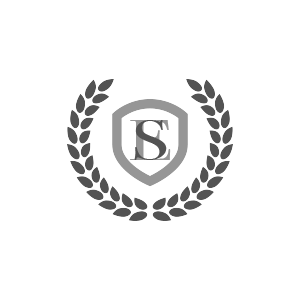About SESEC
Project Partners
European Committee for Standardization (CEN)
The European Committee for Standardization (CEN) is one of three European Standardization Organizations officially recognized by the European Union and EFTA as being responsible for developing and defining standards at European level (alongside CENELEC and ETSI).
Through its services, CEN provides a platform for the development, adoption and revision of European Standards (ENs) and other types of technical documents that set out requirements and specifications in relation to a wide range of processes, materials, products and services.
CEN brings together the National Standards Bodies of 34 countries including all of the EU member states plus 3 EFTA countries (Iceland, Norway and Switzerland) and 2 EU candidate countries (Turkey and the former Yugoslav Republic of Macedonia). European Standards (ENs) that have been adopted by CEN are automatically accepted and published in all of these countries.
CEN and its Members work together with various stakeholders – including industry, SMEs, societal stakeholders, public sector bodies, academics and researchers – to develop voluntary European Standards (ENs) and other deliverables across a wide range of different fields and sectors.
CEN contributes to meeting the needs of industry and other stakeholders, completing the European Single Market for goods and services and strengthening Europe’s position in the global economy.
CEN works in partnership with the International Organization for Standardization (ISO) to coordinate their respective activities and also to enable (where possible) the alignment of European and international standards. Around a third of CEN standards are identical to ISO standards.
CEN cooperates with the European Commission within the framework of EU Regulation 1025/2012 in order to develop and adopt ‘harmonized standards’ and other deliverables that support the implementation of EU policies and legislation, notably by enabling manufacturers and other economic actors to comply with the essential requirements laid down in EU Directives.
CEN collaborates with the other European Standardization Organizations (CENELEC and ETSI) to develop joint activities in areas of common interest, and to promote and strengthen the European Standardization System for the benefit of businesses, consumers and society as a whole.
For more information, please visit www.cen.eu
European Committee for Electrotechnical Standardization (CENELEC)
The European Committee for Electrotechnical Standardization (CENELEC) is one of three officially recognized organizations responsible for developing and defining standards at European level (alongside CEN and ETSI). CENELEC provides a platform for the development, adoption and revision of European Standards (ENs) and other deliverables in the fields of electricity, electronics and associated technologies.
CENELEC brings together the National Electrotechnical Committees of 33 European countries. These include all 28 Member States of the European Union and three Member States of the European Free Trade Association (Iceland, Norway and Switzerland) plus two EU candidate countries (Turkey and the former Yugoslav Republic of Macedonia). The members of CENELEC work together with various stakeholders – including industry, SMEs, societal stakeholders, public sector bodies, academics and researchers – to develop voluntary European Standards (ENs) and other deliverables.
CENELEC contributes to meeting the needs of industry and other stakeholders, completing the European Single Market and strengthening Europe’s position in the global economy.
CENELEC works in partnership with the International Electrotechnical Commission (IEC) to coordinate their respective activities and enable the alignment of European and international standards. More than two-thirds of all CENELEC standards are identical to IEC standards.
CENELEC cooperates with the European Commission to develop and adopt harmonized standards and other deliverables that support the implementation of EU policies and legislation.
CENELEC collaborates with the other European Standardization Organizations (CEN and ETSI) to develop joint activities in areas of common interest, and to promote and strengthen the European Standardization System for the benefit of businesses, consumers and society as a whole.
For more information, please visit: www.cenelec.eu
European Telecommunications Standards Institute (ETSI)
The European Telecommunications Standards Institute (ETSI) produces globally-applicable standards for Information and Communications Technologies (ICT), including fixed, mobile, radio, converged, broadcast and internet technologies.
We are officially recognized by the European Union as a European Standards Organization. The high quality of our work and our open approach to standardization has helped us evolve into a European roots – global branches operation with a solid reputation for technical excellence.
ETSI is a not-for-profit organization with more than 800 member organizations worldwide, drawn from 64 countries and five continents. Members include the world’s leading companies and innovative R&D organizations.
Going beyond Europe’s borders, ETSI is a world-renowned organization with a solid reputation for technical excellence. It makes its expertise in interoperability, and the standardization of some of today’s most important technologies, available to its Members and customers through a range of services for growing ideas and enabling technologies. There can be little argument that ETSI’s most significant technical success to date has been GSMTM, Global System for Mobile Communications. Introduced as a digital cellular technology to replace a plethora of incompatible analogue systems in Europe, GSM has become a global success, serving over two billion users in more than 200 countries world-wide. This has been the base for the 3rd Generation of mobile which has been developed by ETSI in partnership with other regions under the umbrella of the 3rd Generation Partnership Project (3GPP™). Since its inception in 1988 ETSI has published over 32 000 ETSI deliverable.
As the effects of globalization permeate further and accelerate, ETSI is providing business and industry with efficient solutions for accessing and developing new and established world markets via standardization. Globally applicable ETSI Standards and Technical Specifications such as GSM™ (2.5 billion mobile connections), DECT™, TETRA and DVB are prime examples of the role we play in growing international markets.
ETSI has made a very significant contribution to European legislation by producing many Harmonized Standards to be used in the application of European Directives and supporting “EU policy initiatives” and EFTA policy issues such as the “New Approach”, other EU legislation (e.g. Electronic Fee Collection, the interoperability regulation under the Single European Sky (SES) initiative, the Electronic Communication Network and Services Framework Directives), mandated activity and other EU initiatives (e.g. eEurope and 2010).
One of the key motives for the development of communications standards is to enable interoperability in a multi-vendor, multi-network, multi-service environment. ETSI takes great care to ensure that its standards are well-written – complete, clear, unambiguous and well-structured. ETSI builds in interoperability considerations from the very beginning of its standards-making process and validates and test its standards to ensure their quality. Our Centre for Testing and Interoperability (CTI) provides hands-on support and assistance to our technical committees, the Third Generation Partnership Project (3GPP™) and the oneM2M Partnership Project on the application of testing and validation techniques in standards-making.
Directorate General for Internal Market, Industry and Entrepreneurship (DG GROW) of the European Commission
The European Commission’s Directorate General for Internal Market, Industry and Entrepreneurship has the mission to promote a growth-friendly framework for European enterprises. It has a key role in the Europe 2020 agenda of smart, sustainable and inclusive growth.
To promote growth in Europe, we focus on six objectives:
- Ensure an open internal market for goods in the EU;
- Strengthen the industrial base in Europe;
- Encourage the growth of SMEs and promote an entrepreneurial culture;
- Promote industrial innovation to generate new sources of growth;
- Support the internationalisation of EU businesses;
- Support the European presence in space and satellite navigation.
Our flagship initiative is “An Industrial Policy for the Globalisation Era” which sets out a number of actions to improve the business environment, notably for SMEs, and to support the development of a strong and sustainable industrial base able to compete globally.
DG Grow is playing an active role to promote smart, sustainable and inclusive growth throughout all industrial sectors, including service industries like tourism. The policy of Grow contributes to making Europe a more competitive, innovative and resource-efficient economy, ready to tackle today’s and tomorrow’s challenges.
They are responsible for the product legislation in a number of sectors to ensure a well-functioning internal market. They manage large industrial programmes in space and satellite navigation (GALILEO and Copernicus). They are the voice of SMEs in European policy-making. In short, they are pursuing a “MISSION GROWTH” to lead Europe in the new industrial revolution.
DG Grow employs around 1,000 people in its departments and units and is responsible for a budget of some € 1.5 billion.
European Union has an active standardization policy, which promotes standardization in support of better regulation, and as an instrument for the competitiveness of European industry. This policy is centered upon the recognized European standardization system, and a partnership to implement the ‘New Approach’. In its Communication “The role of European standardization in the framework of European policies and legislation” of 18 October 2004, the Commission highlighted its standardization policy and formulated recommendations aiming to improve the European standardization system, by:
- Continuing to make more extensive use of European standardization in European policies and legislation;
- Improving the efficiency, coherence, visibility of European standardization and of its institutional framework (including the effective participation of all interested parties and the financial viability of European standardization);
- Continuing to promote international standards while ensuring that they are consistent with the objective of EU policies, and to enhance the role of European standardization in the international context and the visibility of its achievements.
More information about the “Europe 2020” strategy can be found on the European Commission’s central Europe 2020 website: http://ec.europa.eu/europe2020/index_en.htm
European Free Trade Association (EFTA)
The European Free Trade Association (EFTA), founded in 1960, is an intergovernmental organization set up for the promotion of free trade and economic integration to the benefit of its Member States (Iceland, Liechtenstein, Norway and Switzerland).
The EFTA Secretariat manages the EFTA Convention (intra-EFTA trade), the EFTA Free Trade Agreements (third country relations) and the EEA Agreement (for the three EEA EFTA Countries).
The last decades have seen an impressive expansion of EFTA’s free trade network. EFTA States have concluded 25 free trade agreements (covering 36 countries). Discussions are taking place with a number of states on new agreements. The agreements are based on and seek to promote the multilateral rule-based trading system, as embodied in the WTO. Although EFTA’s membership is small, it is a world leader in the promotion of free trade. The EFTA economies are also consistently high performers as to competitiveness, ranking among the top 30 most competitive economies worldwide.
The EEA Agreement entered into force in 1994 and extends the Internal Market of the EU to the three EEA EFTA States Iceland, Liechtenstein and Norway by incorporating EU legislation into the Agreement. In order to ensure that public authorities and enterprises in the EEA EFTA countries abide by the rules of the EEA Agreement, the EFTA Surveillance Authority has been established in Brussels, which has close contacts and cooperation with the Commission. The EFTA Court based in Luxembourg deals with infringement actions brought by the Surveillance authority against an EEA EFTA State with regard to the implementation, application or interpretation of an EEA rule.
In order to ensure that public authorities and enterprises in the EEA EFTA countries abide by the rules of the EEA Agreement, the EFTA Surveillance Authority has been established in Brussels, which has close contacts and cooperation with the Commission. The EFTA Court based in Luxembourg deals with infringement actions brought by the Surveillance authority against an EEA EFTA State with regard to the implementation, application or interpretation of an EEA rule.
The four EFTA countries and the European Commission closely cooperate on creating and implementing a European standardization policy. This includes parallel financing of standards-related work carried out by CEN, CENELEC and ETSI. EFTA Member States use the same standards as EU countries and have the same conformity assessment procedures.




